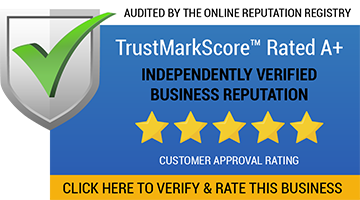Dealing with a wrecked or damaged vehicle can be overwhelming, especially when you’re unsure about your options for disposal or sale. Fortunately, Houston’s large automotive market provides numerous opportunities to sell wrecked car Houston and recover some value from what might seem like a total loss.
Whether your vehicle was damaged in an accident, flood, fire, or simply worn down by time and mechanical failures, understanding the step-by-step process for selling damaged vehicles will help you navigate this challenging situation effectively.
Assessing Your Vehicle’s Condition and Value
The first step in any damaged car Houston sale is conducting an honest assessment of your vehicle’s condition. Document all visible damage with detailed photographs from multiple angles, including close-ups of specific problem areas. Take pictures of the exterior damage, interior issues, engine bay problems, and any structural concerns. These photos will be essential when dealing with potential buyers and insurance companies.
Determine whether your vehicle is considered a total loss by insurance standards or if it has salvage value. In Texas, a vehicle is typically declared a total loss when repair costs exceed 70-75% of its actual cash value. However, even total loss vehicles often retain significant value for parts, scrap metal, or restoration projects.
Research your vehicle’s pre-accident value using resources like Kelley Blue Book, Edmunds, or NADA guides. This baseline helps you understand what your car was worth before damage occurred and provides context for evaluating offers from potential buyers. Remember that damaged vehicles typically sell for 20-60% of their pre-accident value, depending on the extent of damage and remaining usable components.
Understanding Your Legal Obligations
Before proceeding with any sale, understand your legal obligations regarding damaged vehicle disclosure. Texas law requires sellers to disclose known defects and damage to potential buyers. This includes accident history, flood damage, mechanical problems, and any safety issues that might affect the vehicle’s operation.
If your vehicle has been declared a total loss by an insurance company, it will likely receive a salvage title. This designation must be disclosed to any potential buyer and significantly affects the vehicle’s value and marketability. Salvage titles indicate that the vehicle has been damaged beyond economical repair according to insurance standards.
Gather all relevant documentation, including the current title, insurance paperwork, accident reports, and any repair estimates you may have obtained. Having complete documentation demonstrates transparency and can help facilitate smoother transactions with potential buyers.
Exploring Your Selling Options
Houston offers several avenues for selling damaged vehicles, each with distinct advantages and considerations. Houston salvage car buyer services specialize in purchasing damaged vehicles and often provide the most straightforward option for sellers. These companies understand the complexities of dealing with damaged vehicles and can handle much of the paperwork and logistics involved.
Salvage yards and auto recyclers represent another viable option, particularly for vehicles with significant damage. These businesses profit from selling usable parts and scrap metal, making them willing to purchase vehicles that other buyers might reject. Houston’s numerous salvage yards create a competitive market that can benefit sellers.
Online platforms like Copart, IAA, or specialized damaged car marketplaces allow you to reach a broader audience of potential buyers, including individuals looking for restoration projects or businesses seeking specific parts. These platforms often attract buyers willing to pay premium prices for vehicles with desirable components or rare models.
Preparing Your Vehicle for Sale
Even damaged vehicles benefit from proper preparation before sale. Remove all personal belongings, including items in the glove compartment, trunk, and any aftermarket accessories you want to keep. Clean the vehicle as much as possible, as a cleaner car suggests better overall care and can positively influence buyer perceptions.
If your vehicle is still drivable, consider having it inspected by a mechanic to identify any hidden damage or safety issues. This information helps you price the vehicle appropriately and demonstrates transparency to potential buyers. For non-running vehicles, be prepared to arrange for towing or pickup services.
Organize all documentation in a clear, accessible format. Create a folder containing the title, registration, insurance paperwork, accident reports, and any repair estimates. Having organized paperwork demonstrates professionalism and can expedite the sales process.
Working with Insurance Companies
If you haven’t already settled with your insurance company, understand how selling your damaged vehicle might affect your claim. In many cases, insurance companies will take possession of total loss vehicles after paying claims, but some policies allow owners to retain salvage vehicles for a reduced payout.
Communicate with your insurance adjuster about your intentions to sell the vehicle independently. Some insurers may be willing to negotiate retention options that allow you to keep the vehicle while still receiving partial compensation for your loss. This arrangement can sometimes result in better overall financial outcomes.
Be aware that selling a vehicle before settling an insurance claim can complicate the claims process. Work closely with your insurance company to ensure you’re following proper procedures and not jeopardizing your coverage or claim settlement.
Negotiating with Salvage Buyers
When dealing with Houston salvage car buyer services, understand that these businesses operate on volume and quick turnaround. They typically offer below-market prices but provide convenience and immediate payment. Get quotes from multiple salvage buyers to ensure you’re receiving competitive offers.
Be prepared to negotiate, but understand the limitations of your position. Salvage buyers factor in towing costs, processing expenses, and profit margins when making offers. However, competition among Houston’s numerous salvage operations can work in your favor if you’re willing to shop around.
Ask about pickup arrangements and payment methods. Reputable salvage buyers should offer free towing and immediate payment upon vehicle pickup. Be wary of buyers who require upfront payments or seem reluctant to provide references or proof of licensing.
Handling Title and Transfer Issues
Damaged vehicles often present unique title challenges that require careful attention. If your vehicle has been declared a total loss, you’ll need to obtain a salvage title before completing any sale. This process involves working with the Texas Department of Motor Vehicles and may require specific forms and fees.
For vehicles with liens, coordinate with your lender to understand the payoff process. Some lenders may require specific procedures for vehicles being sold for salvage, and you’ll need to ensure the lien is properly released upon sale completion.
Keep detailed records of the sale transaction, including buyer information, sale price, and transfer date. This documentation protects you from future liability issues and provides necessary information for tax reporting purposes.
Maximizing Your Return
To get the best possible price for your damaged car Houston sale , consider timing your sale strategically. Scrap metal prices fluctuate based on market conditions, and selling when prices are higher can increase your return. Similarly, certain types of damage may be more or less desirable depending on current market demand for specific parts.
If your vehicle contains valuable components like a good engine, transmission, or high-demand parts, highlight these features when marketing to potential buyers. Sometimes the value of individual components exceeds the vehicle’s worth as a whole unit.
Consider partial dismantling if you have the knowledge and tools to safely remove valuable components. Selling high-value parts separately while disposing of the remaining shell to a salvage yard can sometimes yield better overall returns, though this approach requires more time and effort.
Safety and Legal Considerations
Throughout the selling process, prioritize safety when dealing with potential buyers or arranging vehicle pickup. Meet buyers in safe, public locations when possible, and be cautious about allowing strangers to inspect vehicles at your home. Many Houston police stations offer safe exchange zones specifically for these types of transactions.
Ensure you’re working with licensed, insured buyers, particularly when dealing with salvage operations. Legitimate businesses should be willing to provide proof of licensing and insurance coverage. This protection is important in case of accidents or disputes during the transaction process.
Conclusion
Selling a wrecked or damaged car in Houston requires careful planning and understanding of your options, but it’s entirely manageable with the right approach. By following this step-by-step process, you can navigate the complexities of damaged vehicle sales while maximizing your return and ensuring legal compliance. Houston’s robust automotive market provides numerous opportunities for sellers willing to invest time in proper preparation and research, turning what might seem like a total loss into a reasonable financial recovery.





